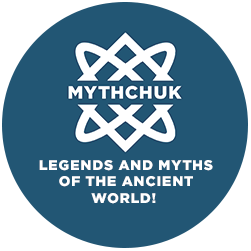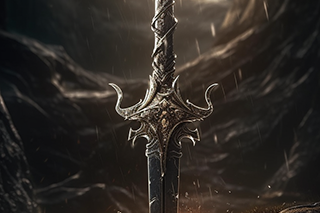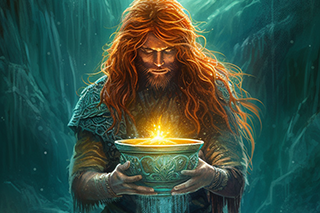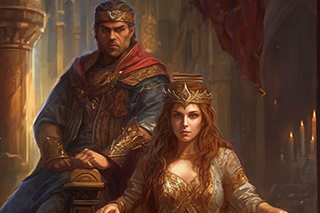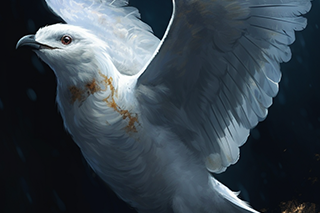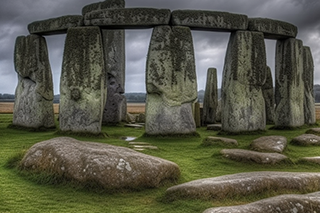Celtic Mythology
- Main
- >
- Celtic Mythology
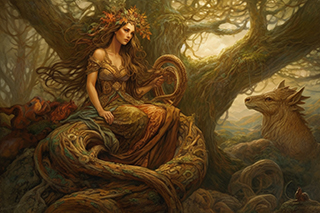 Celtic Mythology
Celtic MythologyCeltic mythology originated in the British Isles and Western Europe. Unfortunately, it has survived very poorly to the present day. The language was almost completely lost, and only fragmentary facts and scattered details of rituals remain. The oldest descriptions are reconstructions by Greek and Roman writers based on eyewitness accounts and oral retellings.
The Celtic religion was fully formed by the 6th century BCE and has roots as far back as the Neolithic era. Some of its traditions and rituals were later absorbed by Christianity. For example, the Celts practiced initiation by immersion in a cauldron — which may have influenced the Christian rite of baptism.
From Roman records and artwork, it’s clear that the Celts had a rich and diverse pantheon. Deities overlapped across different tribes, highlighting strong intertribal connections, even between Gaul and Britain. Their gods mostly had totemic origins and were worshipped through various cults — such as those of hunting, herding, agriculture, and more. Animals were revered much like in Ancient Egypt, and gods often embodied animal traits and appearances. Nature forces and seasons were also deeply honored, reflected in seasonal festivals and rituals. One of the most important was **Samhain**, the celebration of the year’s end, held on October 31st. Sound familiar?
Festivals were closely linked to ancestor worship. Ceremonies were held at burial mounds or sacred stones believed to house the souls of deceased heroes. During these events, burials would take place. The first burial was temporary, happening immediately after death. A second, collective burial followed later for members of the entire clan or tribe. During this second ceremony, the soul would leave the body and be transported to the land of **Avalon**, where — now immortal — it would await reincarnation.
Celtic culture laid part of the foundation for European civilization — particularly visible in medieval knightly literature. Just think of the countless references to **King Arthur** and his knights. Or the tales surrounding the **Holy Grail** from Celtic myths about **Perceval**, the tragic love of **Tristan and Isolde**, Shakespeare’s **King Lear**, and the medieval legend of **Saint Patrick’s Purgatory**. This heritage could have been even richer and more captivating — if only more of it had survived to our time.
